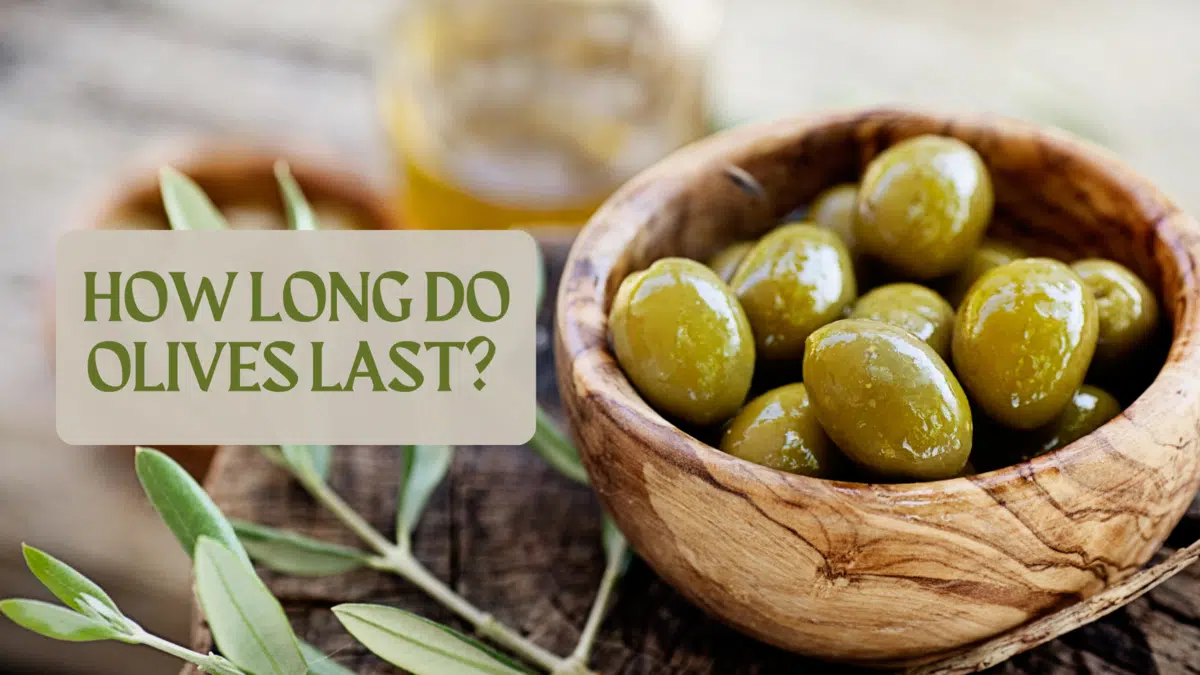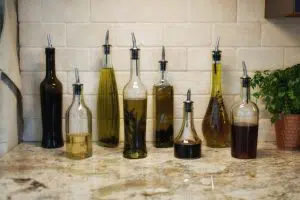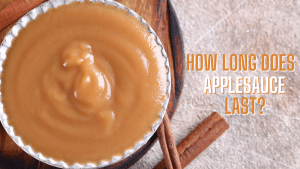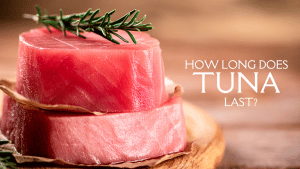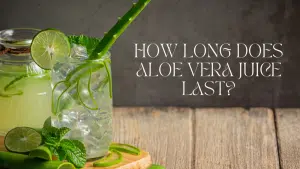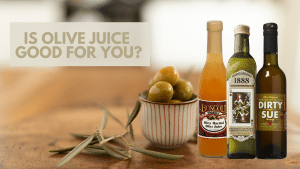How Long Do Olives Last? Do They Spoil?
Important Note: When you buy through our links, we may earn a commission. As an Amazon Associate we earn from qualifying purchases. Content, pricing, offers and availability are subject to change at any time - more info.
Most of us buy olives when we have a hankering for these salty and delicious little snacks, or if we are whipping up pizza or even throwing together a salad. Sometimes we add a batch of olives to our cheese board. But despite the many ways olives find their way onto our plates, there is always more left in the jar or can.
Sure, many of us don’t use olives very often, but almost all of us have a jar of olives lurking in the pantry or fridge just in case the craving hits us. But how long does that open jar of olives last in the fridge? And what about the box of olives from the deli? And stuffed olives, how long do they last? What is the actual shelf life of olives, and do they spoil?
- Do Olives Spoil?
- How Long Do Olives Last?
- How To Store Olives?
- How To Tell If Your Olives Have Gone Bad?
Do Olives Spoil?
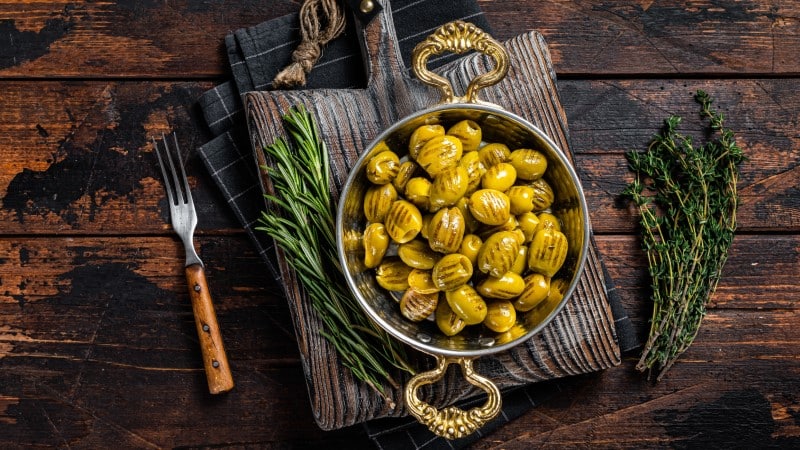
Olives have a very long shelf life and despite their long almost eternal life span, they do spoil. It takes a lot for olives to go bad as they can stay fresh and tasty for an extraordinarily long time, packing a punch and not losing flavor till they expire. If no external factors like not closing the lid properly or forgetting to put them in brine or using fingers or contaminated utensils while handling them, olives go bad only because a really long time has elapsed. Often, this can be years. So, if you have a bottle of olives kicking around in your house, chances are they are probably good and unless you notice distinct spoilage, more on that later, you can definitely continue enjoying them.
How Long Do Olives Last?
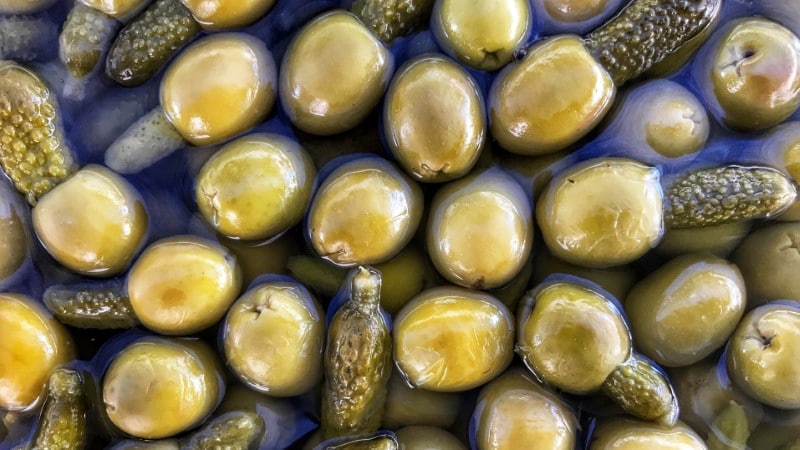
It is difficult to pin down an exact timeframe for the shelf life of olives as there is a range of options available, not just for the different varieties out there, but for how they’ve been stored and sold. Besides this, various producers and retailers give various expiration dates and best-by dates that fall between a few months to a few years. With so many opinions to choose from, your best bet would be to go with the best-by date or sell-by date on the jar or bottle of olives you have. Quick note, the best-by date is only an indicator of how long the product is at peak quality, it is not an indication of when it will spoil.
- In most cases, an unopened jar of olives can last a few months after the best-by date and an open jar of olives will last for at least a month after opening but will be best for 3 weeks after opening.
- The general rule of thumb is that olives soaked in brine have a much longer shelf life than bar olives (dry olives) and olives soaked in oil. Unopened olives can be stored in the pantry in a cool, dark place, away from direct sunlight for them to last longer. But once opened, make sure your olives find themselves in the fridge.
- Olives that are dry, and often sold in delis and salad bars cannot be stored in the pantry but must be refrigerated immediately, whether opened or unopened. They need to be consumed within a week at best. Since they are not floating in brine or oil there are no preservatives to extend their shelf life, so enjoy them as soon as possible, else these delicious condiments need to be trashed.
- The shelf life of olives stored in oil, on the other hand, falls between jarred olives and dry olives. They usually last for a couple of weeks after their best-by dates.
- The shelf life of stuffed olives depends on how they have been stored, whether they are soaking in brine, or oil, or are dry. Use the table below as a guideline to see how long your stuffed olives will last.
- Some people insist olives will be good for up to 2 years, while another school of thought claims that they need to be discarded a few months after opening. Be aware that the salt content in the brine goes a long way in extending the shelf life of olives. The more salt, vinegar, or preservatives, the longer the olives will last.
Below is a table to give you a general idea about the longevity of olives, keep in mind it’s all an estimate. If you are in any doubt, go with whatever the bottle says.
| Type of olive | Pantry | Fridge |
| Olives in Brine (unopened) | Best-by date + 3-6 months | |
| Olives in Brine (unopened) | Best-by date + 1 month | |
| Dry Olives | 1 week | |
| Olives in Oil | Best-by date + 2-4 weeks |
How To Store Olives?
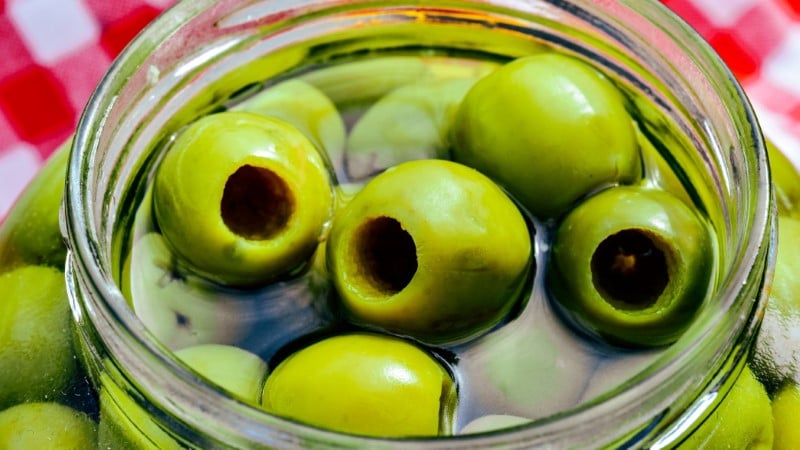
As we have seen, olives are pretty hardy and can, for the most part, take care of themselves. They are very low-maintenance fruits and don’t require too much for us to do. Having said that, it wouldn’t hurt us to be more cautious and take some extra care when handling them.
- If you have an unopened bottle of olives in brine, you can keep it in the pantry for close to 6 months. Keep it in a cool, dark place. Make sure it is in a pantry or cabinet and away from direct heat and sunlight.
- When storing, ensure that the jar, bottle, or box is not damaged, leaking, bloated, or the seal tampered with it. If it is in any of these conditions, then it is safer to throw out the olives.
- If you have opened your bottle of olives, which is soaking in brine, then make sure it is closed properly after use and put away in the fridge.
- If you have accidentally or unwittingly thrown away the brine the olives have come in, do not worry, it is simple enough to replicate. Just add half a teaspoon of salt for every cup of water and soak the olives in them. You can add more salt for longer shelf life, but this will in turn make the olives saltier.
- Bar olives or dry olives need to be refrigerated immediately. You can keep them in the container as is, as long as the container can be sealed tightly. You can also transfer the olives into an airtight container or pouch.
- Olives that come swimming in oil should be stored in the fridge. Make sure it is in an airtight container.
- Never store olives open in the fridge, they should always be closed.
- When handling olives, of any kind, from any kind of container, use utensils like spoons, forks, or toothpicks, do not use your fingers.
How To Tell If Your Olives Have Gone Bad?
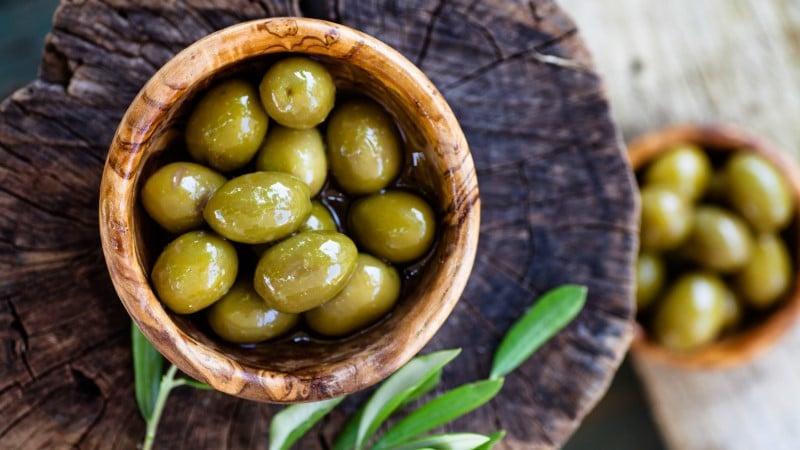
- If the bottle or jar your olive is in has a bloated lid, then the olives have spoiled.
- The smell, of course, is the best way to tell if olives have gone bad. They will have a distinctly funky odor.
- Another good indication is discoloration. If the olives have changed in color or they seem to have a whitish sheen to them, they have spoiled. Do not consume rotten olives, as this may cause nausea, vomiting, diarrhea, and other similar symptoms, although they don’t last long.
- If the olives are shriveled up and wrinkly, there is a good chance they have spoiled.
So, go ahead and enjoy these delicious treats for a long, long time. But, if you are ever in doubt, you can just toss the olives away, but chances are unless you have been storing olives for years, they are probably safe to consume.
